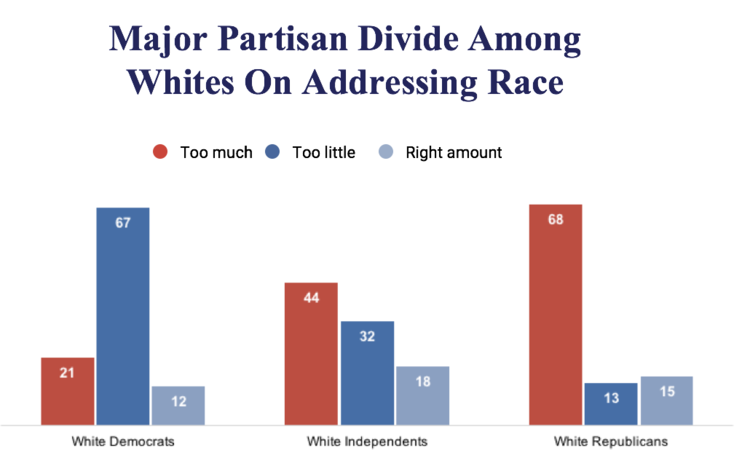1. Over the last two years, would you say your own personal financial situation has gotten better, gotten worse, or stayed about the same?
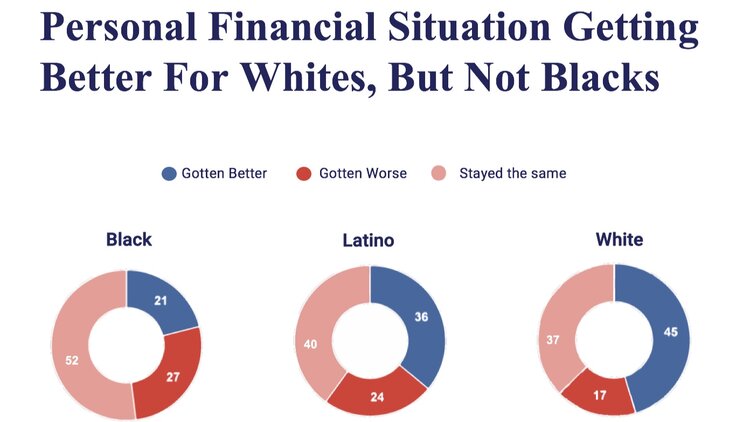
2. Do you think people living in poverty or living with very bad economic situations made poor life choices that led to their situation or is there a lack of opportunity in their community?
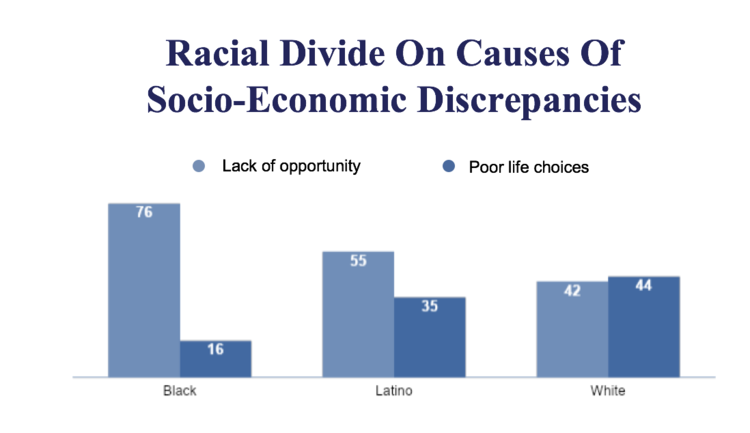
3. Now i am going to read you some different factors that may serve as barriers to economic opportunity. Which two of the following are the greatest barriers to achieving more economic opportunity for you personally?
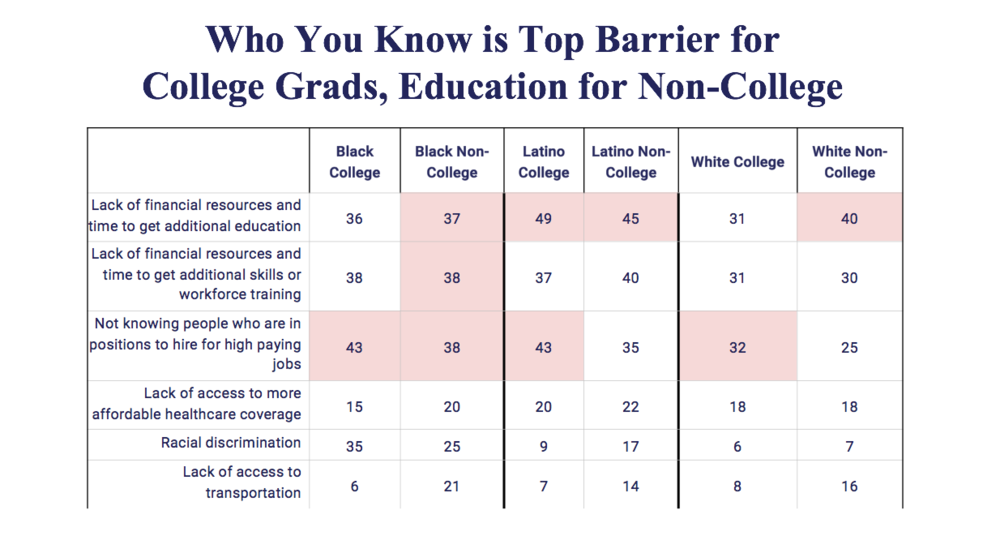
4. Do you think white people in the united states have more economic opportunities than African Americans and Hispanics?
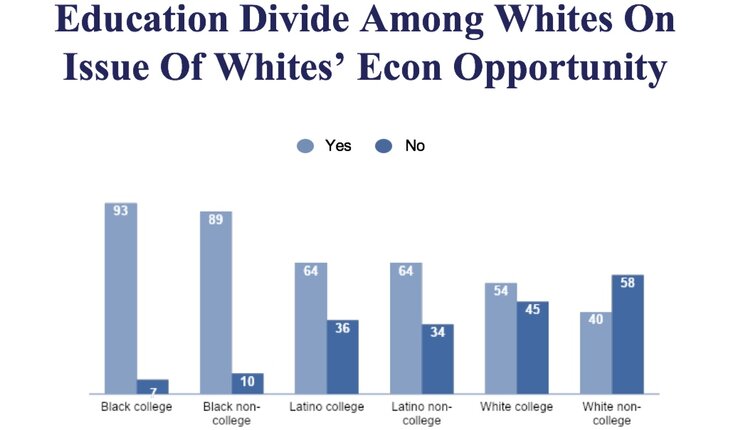
5. Do you think white people in the united states have more economic opportunities than African Americans and Hispanics?
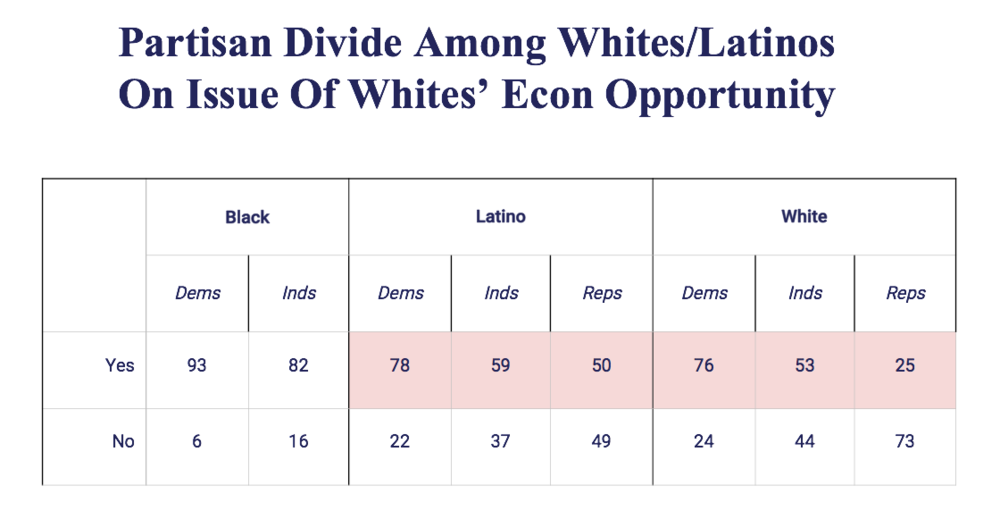
6. After I read each one, please tell me whether you agree or disagree with this statement.
The legacy of slavery and systemic racism play a big role in why African Americans do not have the same economic conditions as other Americans today.
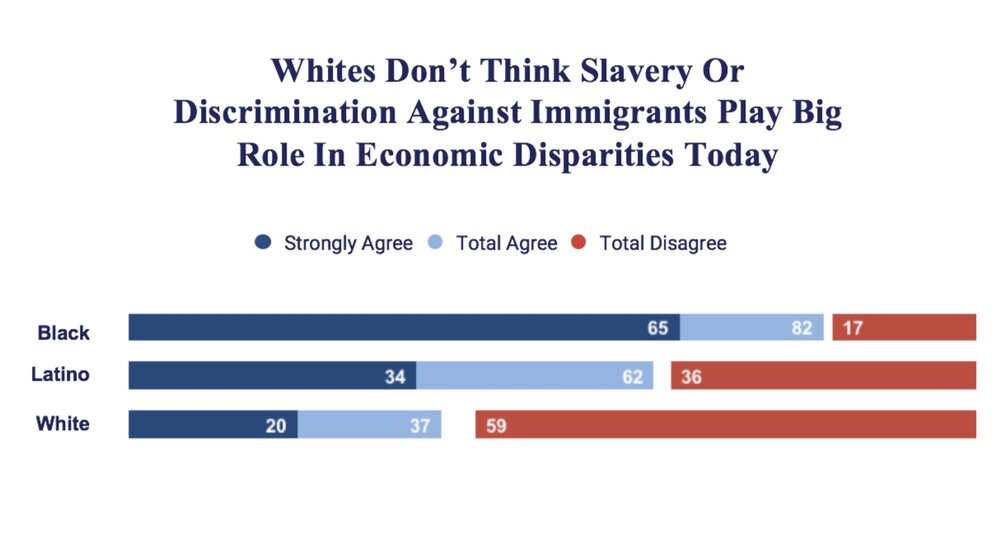
Discrimination against immigrants from Mexico, Central America, and South America plays a big role in why Hispanics do not have the same economic conditions as other Americans.

7. (Split) do you think that the legacy of slavery makes it harder for black people in America to get ahead today?
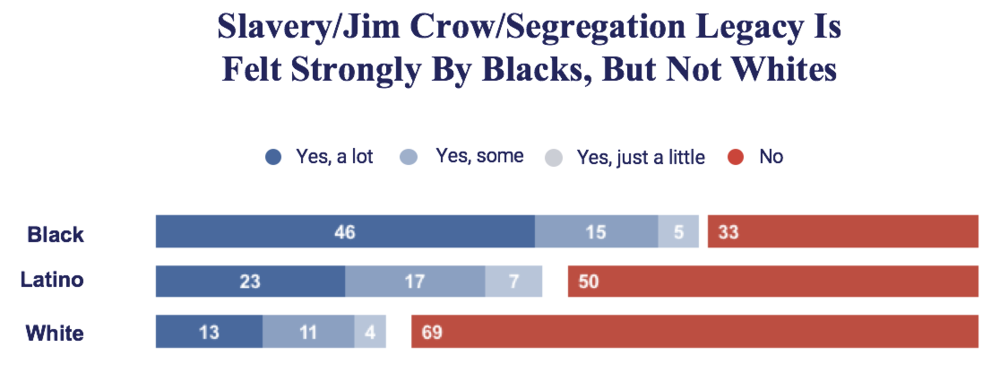
(Split) do you think that the legacy of slavery, Jim Crow laws, and segregation makes it harder for black people in America to get ahead today?

8. Do you support or oppose financial reparations for the direct descendants of slaves?
(Split) No Explanation
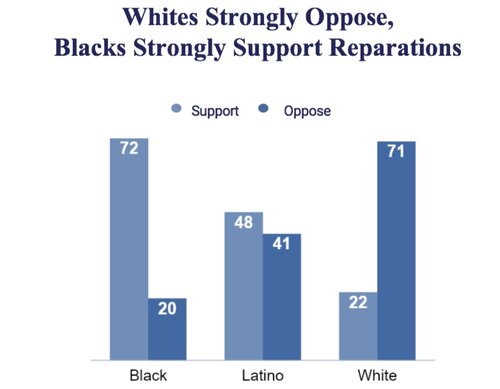
(Split) as you may know, there has been some discussion about the U.S. Government providing financial reparations for the direct descendants of slaves as compensation for the injustice of slavery and the damages that the legacy of slavery has had.

9. Please tell me how often you personally interact with someone of a different race than your own when you are at this kind of place or activity – often, sometimes, rarely, never.
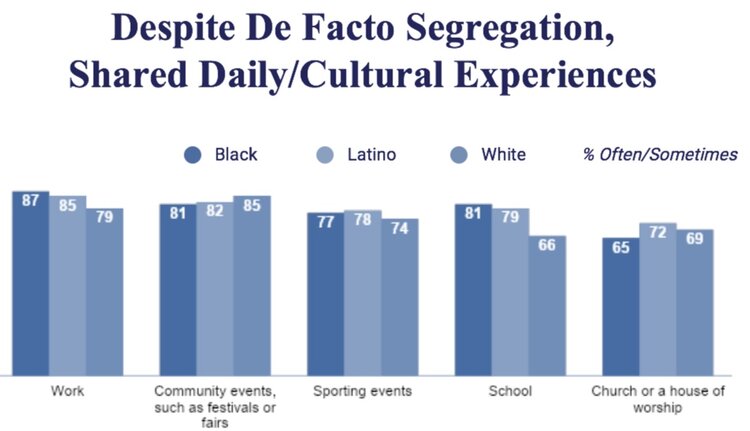
10. Please tell me whether you agree or disagree with this statement:
Diversity is good for a community and makes the community stronger.

11. Please tell me whether you agree or disagree with this statement.
In order for America to reach its full potential, all Americans regardless of race must have equal rights, the same economic opportunities, and the same access to quality education.
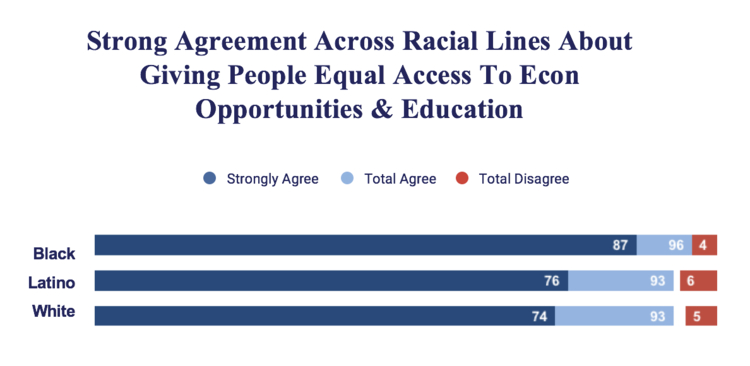
12. Split: do you think race relations in the United States today are better, worse, or about the same as five years ago?
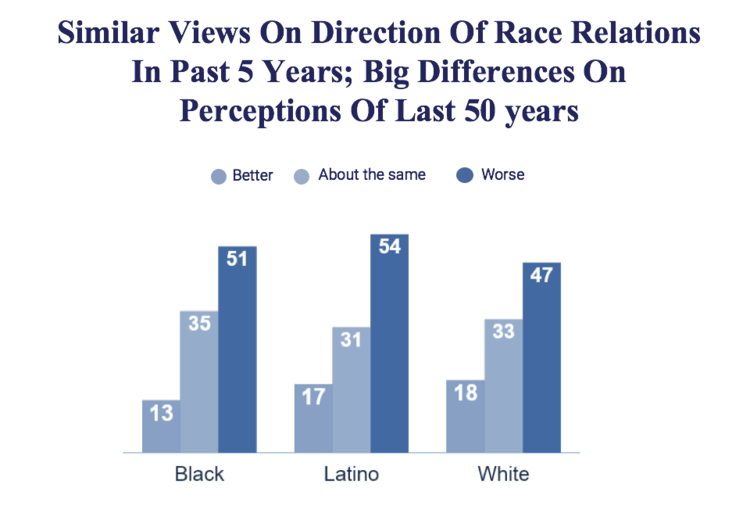
Split: do you think race relations in the United States are better, worse, or about the same as fifty years ago?
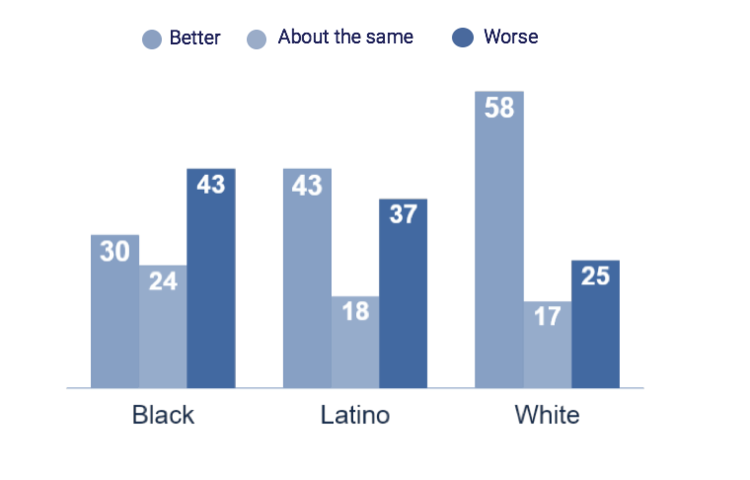
Do you think race relations in the united states are better, worse, or about the same as five years ago?
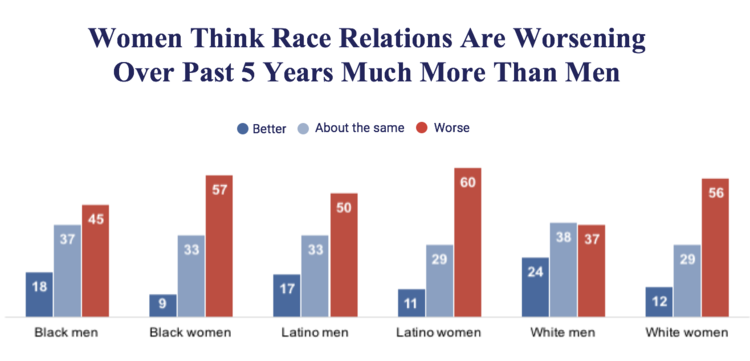
13. Based on your understanding of the American Civil War, was the Civil War primarily fought over the issue of slavery or over other issues between the North and the South?
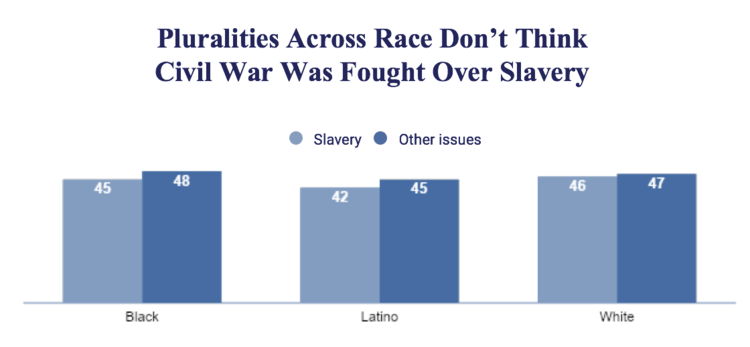
Based on your understanding of the American Civil War, was the Civil War primarily fought over the issue of slavery or over other issues between the North and the South?
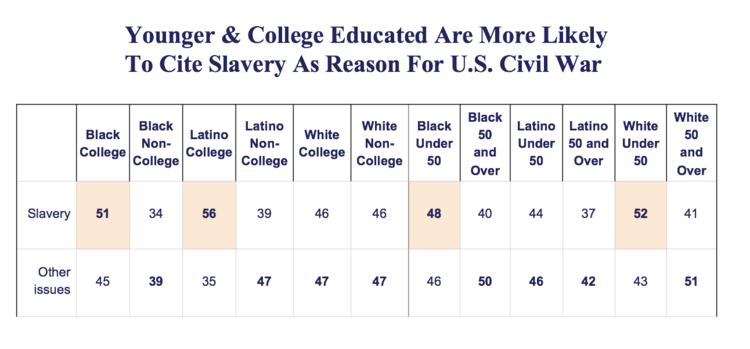
14. I want to now read you a definition that some people may give for the term “equity.” when I am done reading this definition, please tell me how well this definition matches your own understanding of the term “equity.” does this definition match your own understanding of the term “equity” very well, well, not too well, or not at all well?
“Equity is the fair opportunity for everyone to attain their full potential regardless of demographic, social, economic, or geographic status.”
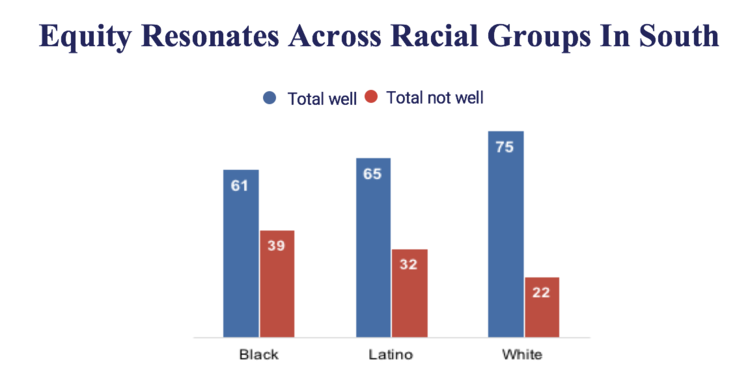
15. Thinking about this definition of “equity” that I just read, how important do you think “equity” is for our country to move forward – very important, important, not too important, or not at all important?
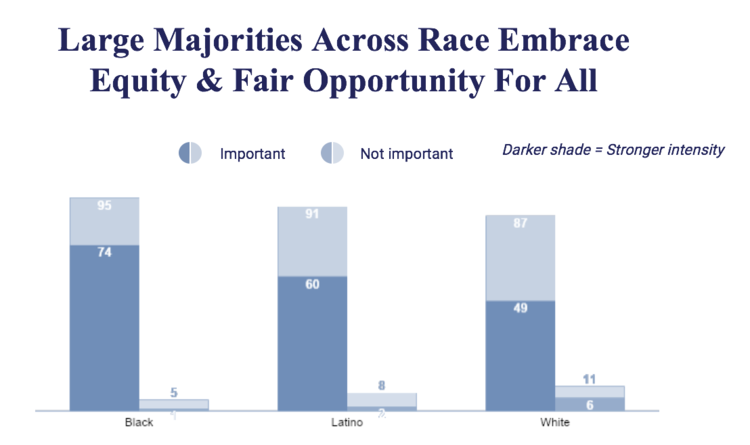
16. Now, I am going to ask you some questions about race and racial relations in the united states. First, do you think there is too much, too little, or the right amount of attention paid to race and racial issues in the united states today?
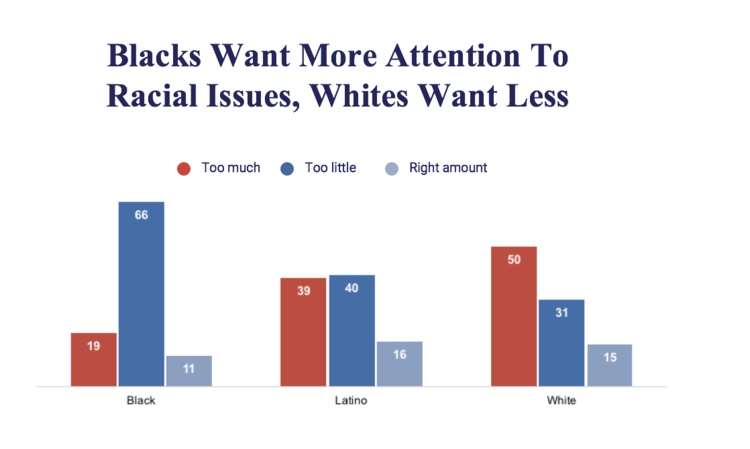
Now, I am going to ask you some questions about race and racial relations in the united states. First, do you think there is too much, too little, or the right amount of attention paid to race and racial issues in the united states today?
